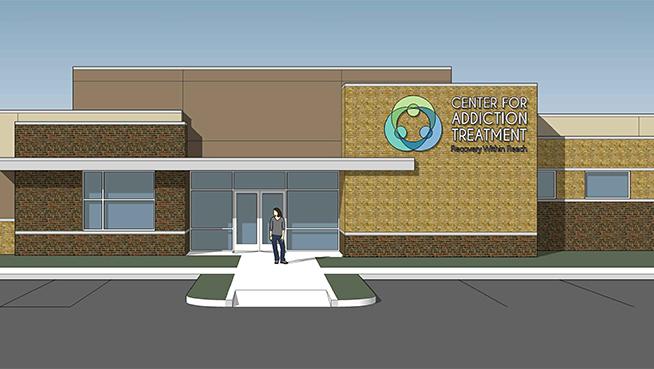Navigating the Trip of Cleansing in the Comprehensive Dependency Treatment Program
Beginning on the path of cleansing within the structure of an extensive dependency treatment program is a critical phase in the trip towards recuperation. The procedure of detoxing holds a substantial role in damaging the physical dependence on substances and preparing the person for the succeeding stages of therapy. Nevertheless, browsing via detoxification is not simply a matter of physical cleansing; it involves a complex interplay of emotional, psychological, and social factors that need mindful factor to consider and support. As people grapple with the obstacles of withdrawal signs and symptoms and the uncertainties that exist in advance, having a robust assistance and a structured strategy system in place ends up being vital. In this conversation, we will discover the complex facets of detoxification within the extensive dependency treatment program and lost light on the important parts that shape this transformative journey in the direction of recovery.
Significance of Detoxification in Healing

Detoxification sets the structure for the remainder of the addiction therapy program by preparing the person for more treatment and therapy. By cleaning the body of substances that have actually been clouding judgment and impacting habits, detoxification enables clients to approach their healing with a more clear mind and more powerful emphasis.
Additionally, detoxification helps in taking care of the possibly extreme withdrawal symptoms that might emerge when medication or alcohol use is quit. Doctor closely keep an eye on people during detoxification to ensure their safety and offer needed support. Via this process, individuals can begin their trip in the direction of soberness with a maintained physical and mental state, enhancing the possibility of an effective healing.
Comprehending the Detox Refine
Detoxification, a fundamental part of dependency treatment programs, includes an organized process focused on safely removing harmful materials from the body to facilitate a successful recovery trip. The detoxification procedure normally begins with an assessment to analyze the person's material use history, physical wellness, and mental well-being. This examination helps healthcare professionals identify one of the most appropriate detoxification strategy customized to the person's needs.
Throughout detoxification, the body goes with withdrawal as it adapts to the lack of the substance. Withdrawal signs vary depending on the sort of substance used, the period of usage, and specific variables. Medical supervision throughout detoxification is critical to take care of withdrawal signs and symptoms and ensure the individual's security and convenience.

Handling Withdrawal Signs And Symptoms

Drugs might be used to relieve specific withdrawal signs and symptoms and minimize pain. As an example, drugs like Home Page methadone or buprenorphine can help take care of opioid withdrawal signs, while benzodiazepines might be utilized for alcohol withdrawal. It is vital for health care carriers to very carefully keep an eye on the person's action to these medications to ensure their safety and effectiveness.
In addition to medicinal treatments, encouraging therapies such as counseling, peer assistance groups, and alternative methods like mindfulness reflection or yoga can assist people manage the mental and psychological difficulties of withdrawal. By addressing withdrawal signs and symptoms adequately, doctor can improve the cleansing experience and support people on their trip to recuperation.

Support Solutions Throughout Detoxification
Support group play a crucial function in offering social and emotional help to individuals going through detoxification in dependency therapy programs. Throughout the detox procedure, people often experience a range of physical and mental withdrawal signs and symptoms, making this phase challenging - Addiction Treatment Center. Having a strong support group in position can substantially influence the individual's ability to browse with detox efficiently
Household members, close friends, support system, and health care experts are vital parts of the support group. Family participants and good friends can offer encouragement, understanding, and a sense of belonging during this tough time. Support system offer a system for people to attach with others who are going with similar experiences, supplying a sense of community and shared understanding. Health care experts, including counselors, therapists, and medical professionals, play a crucial function in monitoring the individual's progression, providing clinical support, look at here now and using guidance throughout the detox procedure.
Looking Ahead: Life After Detoxification
Having successfully finished the detoxing phase, people in addiction therapy programs currently focus on getting ready for the obstacles and possibilities that lie ahead in their journey in the direction of healing. Life after detoxification notes an important transition period where individuals have to proceed to improve the development made throughout detoxification to preserve their sobriety. It is vital for individuals to recognize that the trip towards recovery is recurring and requires devotion, commitment, and a willingness to embrace modification.
One trick element of life after detox is the development of dealing mechanisms to deal with triggers and yearnings that may arise. This might include finding out new abilities, such as mindfulness techniques, cognitive-behavioral techniques, and stress management strategies, to browse challenging scenarios without turning to compound use. Additionally, individuals are motivated to proactively involve in recurring treatment, assistance teams, and aftercare programs to reinforce their assistance network and get assistance as they browse the complexities of life post-detox.
Conclusion
Comprehending the detox process and managing withdrawal symptoms are important steps towards recuperation. It is essential to recognize the importance of detox in the process of getting over dependency and relocating towards a life of soberness.
Clinical guidance throughout detoxification is critical to take care of withdrawal signs and make sure the individual's safety and convenience.
By recognizing the detoxification procedure and its significance in breaking the cycle of dependency, individuals can begin on a course in the direction of lasting recuperation.
During the detox process, individuals usually experience a range of psychological and physical withdrawal signs and symptoms, making this phase tough. Healthcare specialists, including doctors, counselors, and specialists, play a crucial duty in monitoring the person's progression, offering medical assistance, and offering assistance throughout the detox procedure.
Life after detoxification notes a critical transition duration where individuals need to proceed to construct on the development made during detoxification to preserve their sobriety.